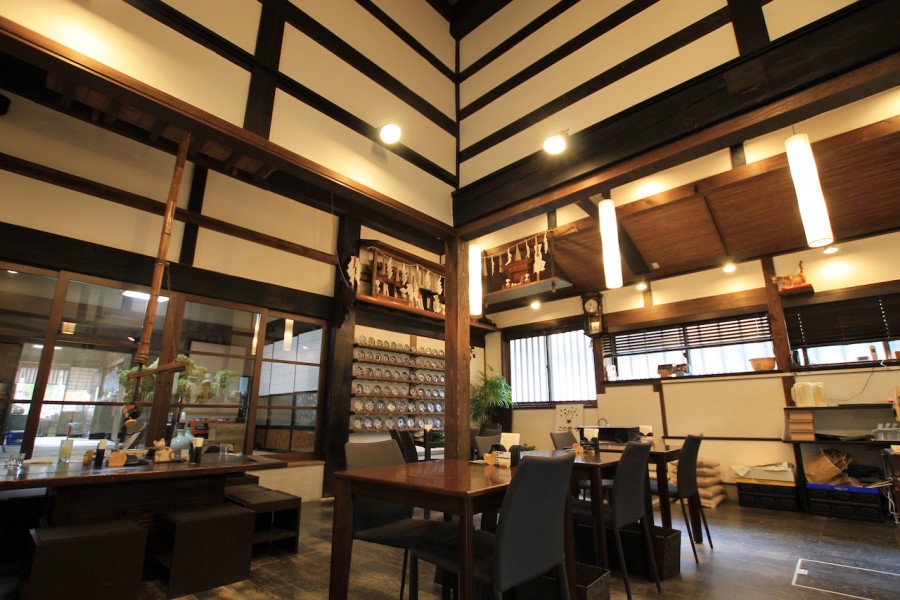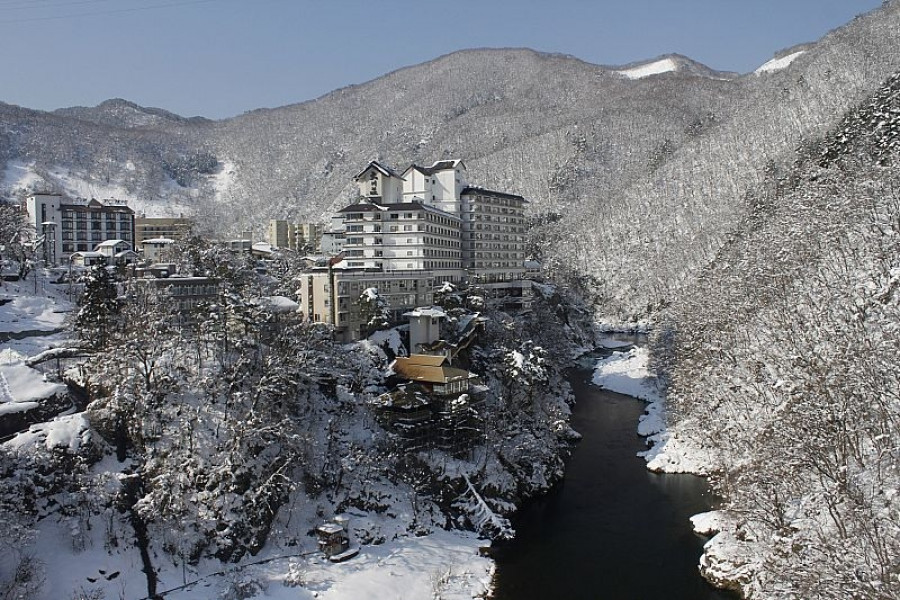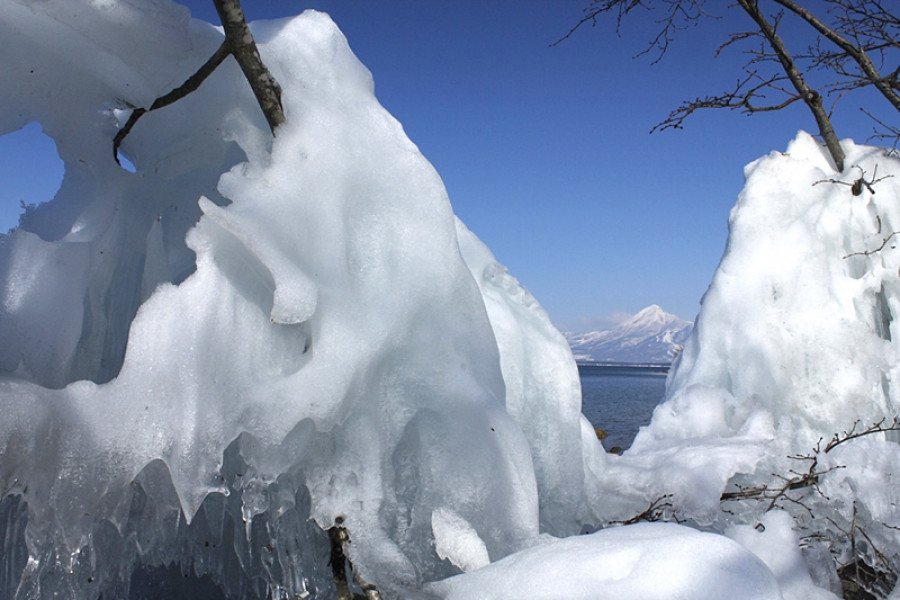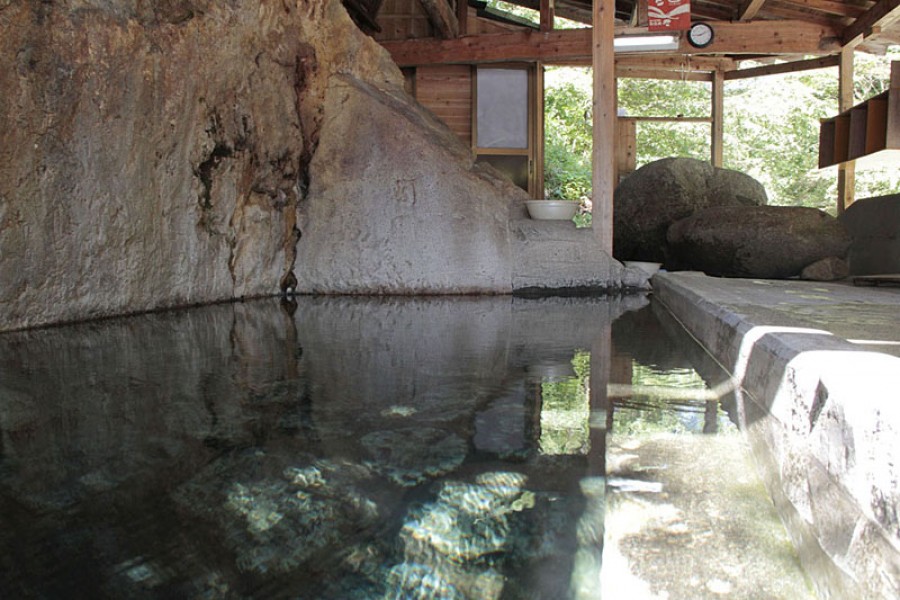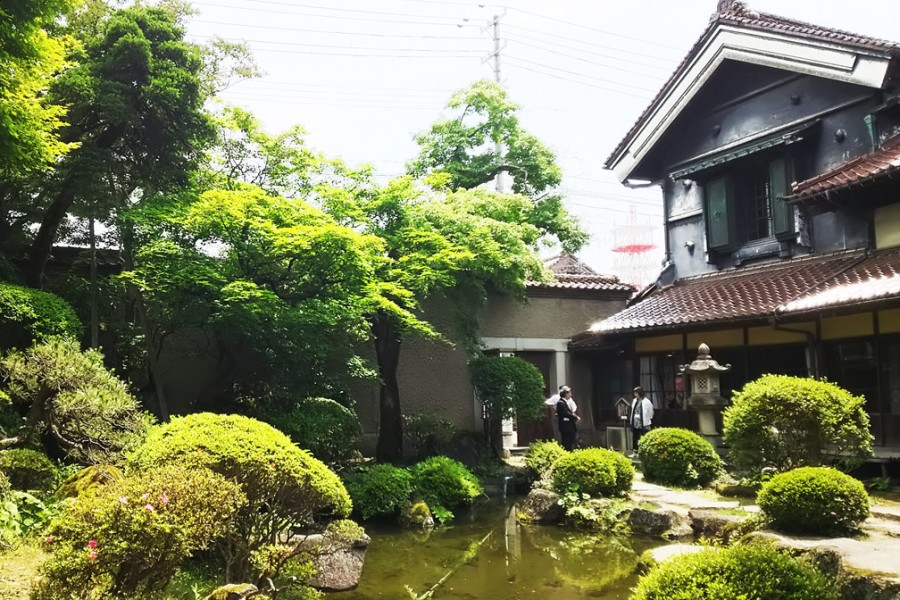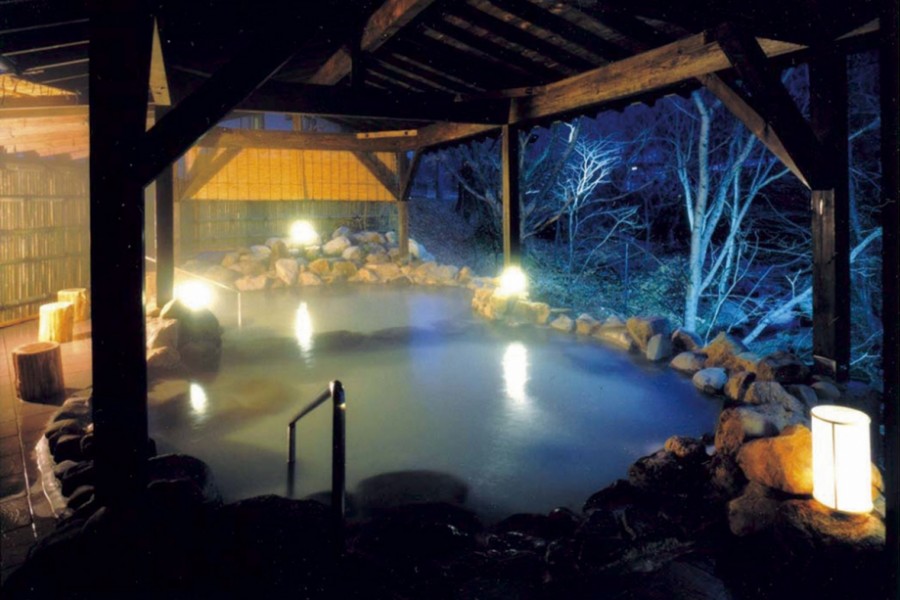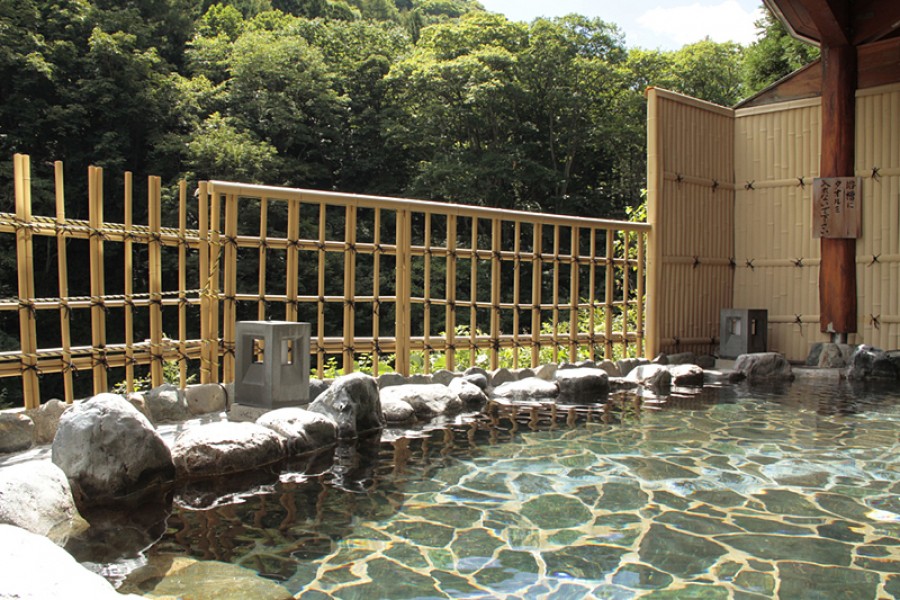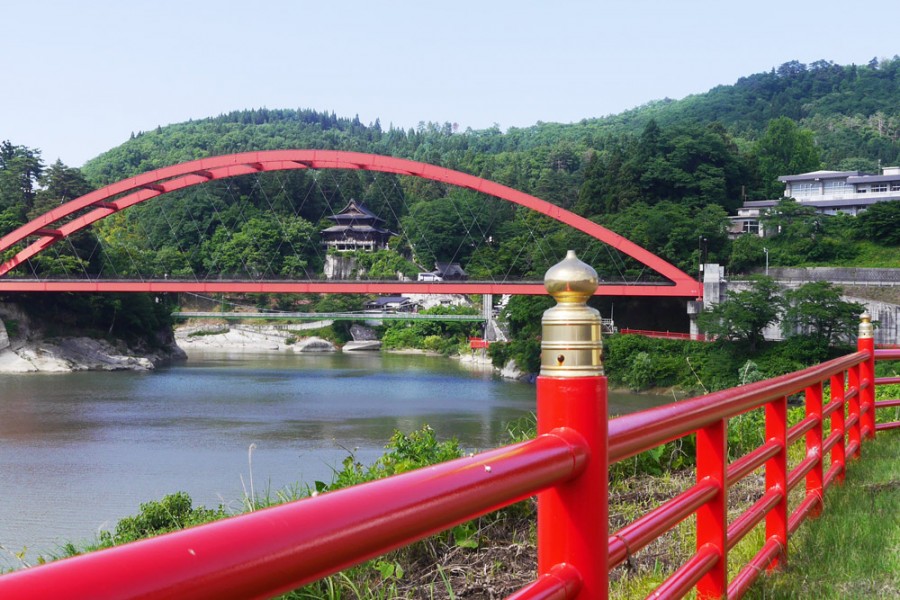Hot Springs
Oze Hinoemata Onsen
Oze Hinoemata Onsen has hot springs fed to every household, as well as bathing facilities run by the village for day visits. Aruza Oze no Sato, Hiuchi no Yu, Koma no Yu are all names of hot spring establishments in the town.
Hinoemata area is also famous for Kabuki, a form of traditional performing art in Japan. Traditional Kabuki performances with a rich history dating from the Edo Period are still performed to this day on Hinoemata's kabuki stage, which is over 250 years old. There are three performances per year (May 12, August 18, and the first Saturday of September).
Explore historical and cultural treasures such as the kabuki stage, the unique shrine featuring a stone statue of Hashiba-no-Banba, itakura (wooden storehouses), the six jizo statues, and the Hinoemata Folk Village by foot. Make sure to try Hinoemata area's 'Yamodo Cuisine': a characteristic cuisine centered on 100% buckwheat noodles, which features dishes such as 'Hatto soba' and rice cakes.
Visitors can also enjoy walking and fishing at Hinoemata Mini Oze Park, a spacious park which comes to life with bright colours throughout the year as various flowers take turns to bloom.
Oze Hinoemata Onsen is at the gateway to Oze National Park, making it as a base for hiking around Ozegahara Marsh, and for climbing mountains such as Mt. Hiuchigatake, Aizu Komagatake, Teishakuzen, and Tashiroyama.
